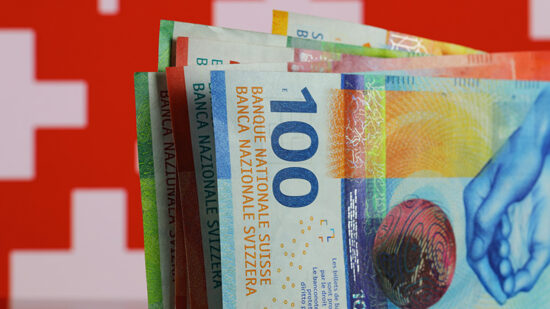Schroder’s multi-manager team faces tough questions as the majority of its funds have been flagged for poor performance for the second year running.
In the FTSE 100 asset manager’s latest assessment of value (AoV) report its fund board determined that 80 out of 89 funds had demonstrated value.
But once again the fund board concluded that four out of six of its multi-manager funds, run by Robin McDonald (pictured) and Joseph Le Jehan, had failed to consistently demonstrate value.
The Diversity Balanced, Diversity Tactical, International and UK Growth funds were given the lowest possible score for performance. Excluding the International fund, the same multi-manager funds were spotlighted for performance issues in Schroders’ debut value report.
All four were also dinged on charges, each scoring a two out of three on comparable market rates and classes of shares or units.
Multi-manager performance fails to pick up
In its report the fund board said the Diversity Balanced and Diversity Tactical funds’ underweight exposure to US equities and tilt toward out-of-favour value stocks had resulted in them underperforming their respective peer groups.
The £108m Diversity Balanced fund has returned 41.7% over five years compared to the the IA Mixed Investment 40-85% Shares sector average of 49.4%, according to Trustnet. Over the same time period the £79m Diversity Tactical fund has returned 44.4%, landing it in the fourth quartile of the IA Flexible Investment sector with the average peer returning 55.1%.
The £139.6m International fund and £11.9m UK Growth fund similarly suffered from having a value bias, the report noted. Though the latter fund started off investing primarily in quality growth companies, Le Jehan and McDonald decided to pivot toward cheaper stocks in 2019 on the basis that “valuations began to look extreme”.
Schroders is currently undertaking a detailed review of the Diversity Balanced, Diversity Tactical and International funds and plans to notify investors of remedial actions.
The fund group said it would also notify investors of steps it is taking with the UK Growth fund. Schroders held off on making any changes to the fund last year due to the market turmoil, a move which has paid off following the value rotation.
UK equity and UK Opportunities funds under new management
The UK Equity and UK Opportunities funds also came under fire for their performance woes. The funds, run by Alex Breese, are both loss-making over three years, with the £370.6m UK Equity fund down 4.6% and the £92.3m UK Opportunities fund down 4.2% against the IA UK All Companies’ gains of 12.9%.
As with several of the multi-manager funds, the UK funds were let down by their value bias. The report highlights UK Equity’s holdings in financials including RBS, Lloyds and Provident Financial and energy supply group Centrica as major detractors, while UK Opportunities was hurt by its bets on Capita, Standard Chartered and holiday maker Thomas Cook.
The fund board noted that remedial actions have already been taken, with many of the problematic holdings sold in 2020 and the proceeds used to diversify the portfolios by buying shares in companies including housebuilder Bellway and sustainable packaging group Mondi.
In addition, Breese has been kicked off both mandates and replaced by Bill Casey & Nick Kissack on 1 May.
Other poor performers
Two of Schroder’s younger funds, the Multi-Asset Total Return fund and the Multi-Factor Equity, were also singled out for a string of underperformance.
The £102m Multi-Asset Total Return fund managed by Alastair Baker and Johanna Kyrklund has returned 2.1% over three years compared to the IA Targeted Absolute Return sector average of 6.3%.
The fund’s value tilt meant it had a “disappointing” first quarter of 2020 but it saw performance improve throughout the rest of the year as Baker and Kyrklund added high conviction strategies to identify underpriced growth stocks, as well as thematic approaches to profit from global mega-trends.
The Global Multi-Factor Equity fund has seen the most challenging period for factor investing in approximately 20 years, according to the report. The £303m fund returned 30.1% over three years as “value has experienced an exceptionally deep, prolonged and broad-based drawdown”.
Schroders said it is confident in the fund’s ability to deliver, following moves to reduce its exposure to size risk in Q4 2020 and enhance liquidity management.
Another low scorer for performance was the £89m Schroder European Alpha Income fund. According to the report, the fund’s performance was adversely affected by its holding in Borr Drilling, which came under pressure after oil prices tanked during the pandemic.
Since the fund was taken over by Martin Skanberg in April last year, Schroders said that the portfolio has performed “broadly in line with the benchmark” and it remains confident in the fund’s ability to deliver on its investment objective.







